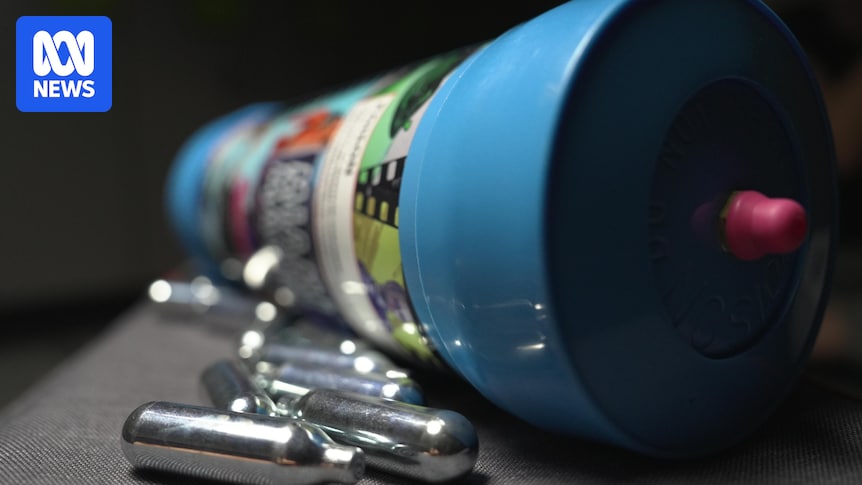
Authorities in Queensland will now have the power to seize nitrous oxide canisters, colloquially known as nangs, found alongside illicit tobacco or nicotine products. This move is part of a new legislative effort targeting the “rising scourge” of illegal substances. The laws aim to address the increasing misuse of nangs, which can cause paralysis when consumed excessively over time.
Under Australian consumer law, nitrous oxide is legally sold for legitimate purposes like whipping cream. However, its recreational use has surged, with the 2021 Global Drug Survey ranking it as the 13th most popular recreational drug worldwide. Health Minister Tim Nicholls emphasized the need for these amendments, citing the growing problem of nang abuse and its impact on public health.
Addressing the ‘Rising Scourge’
The legislative changes were prompted in part by concerns raised by Labor’s Joe Kelly, representing a family in the Greenslopes electorate. Their child has reportedly suffered both physical and mental health challenges due to nitrous oxide addiction, leading to social issues and difficulties in education.
“Their child has suffered physical and mental health challenges as a result of nang abuse … leading to social problems, antisocial behaviour, and major challenges finishing school and transitioning into further study,” Mr. Nicholls stated in parliament.
Comprehensive Measures Against Illegal Trade
Under the newly passed laws, it will also be a criminal offense for commercial landlords to knowingly allow tenants to sell illegal cigarettes and vapes. Queensland Health now has the authority to close businesses on the spot for up to three months if they are found supplying illegal tobacco or nicotine products.
Mr. Nicholls reported that in the government’s first year, nearly 500,000 vapes, over 57 million illicit cigarettes, more than seven tonnes of illicit loose tobacco, and 405,000 nicotine pouches were seized.
“The illicit tobacco and vaping market has become a lucrative revenue stream for organized crime groups,” he said, highlighting the necessity of these reforms.
Impact on Retail and Organized Crime
The Australian Association of Convenience Stores has welcomed the reforms, noting the urgent need to restore fairness in the retail industry. “The explosion of the black market has seen organized crime groups embed themselves in local retail strips,” the association stated in its submission on the bill.
Tobacco Station Group, representing over 540 franchises nationally, described the illicit nicotine market in Queensland as “out of control.” While broadly supportive of stronger enforcement, they urged the government to ensure penalties target illicit operators rather than compliant businesses and landlords.
Political and Public Health Implications
Shadow Health Minister Mark Bailey expressed Labor’s support for the changes, acknowledging the harm illicit tobacco and nicotine products cause to Queenslanders’ health. “The bill would not solve every problem in the illegal vape and tobacco industry, but it is a serious step forward,” Mr. Bailey remarked.
These developments come amid broader efforts to curb illegal trade and its associated health risks. By targeting the financial incentives of organized crime and holding landlords accountable, the new laws aim to dismantle the infrastructure supporting the illicit market.
As Queensland implements these measures, the focus will be on ensuring effective enforcement and monitoring their impact on both public health and the local economy. The state’s approach could serve as a model for other regions grappling with similar challenges.







